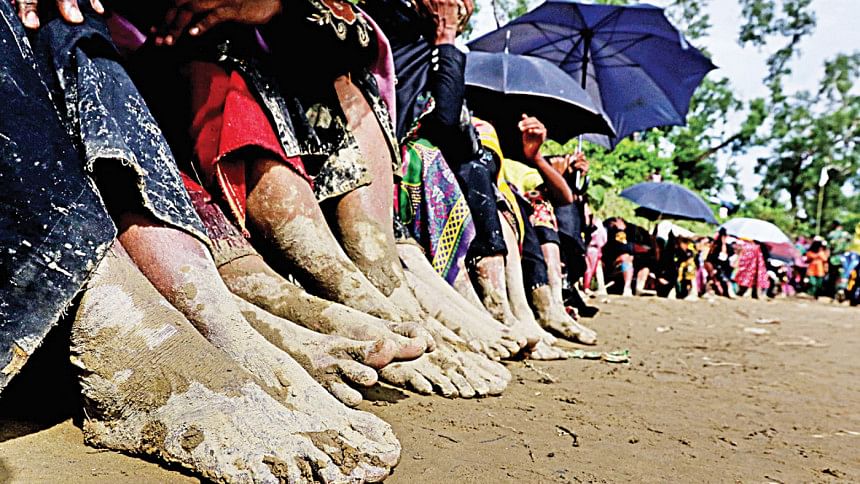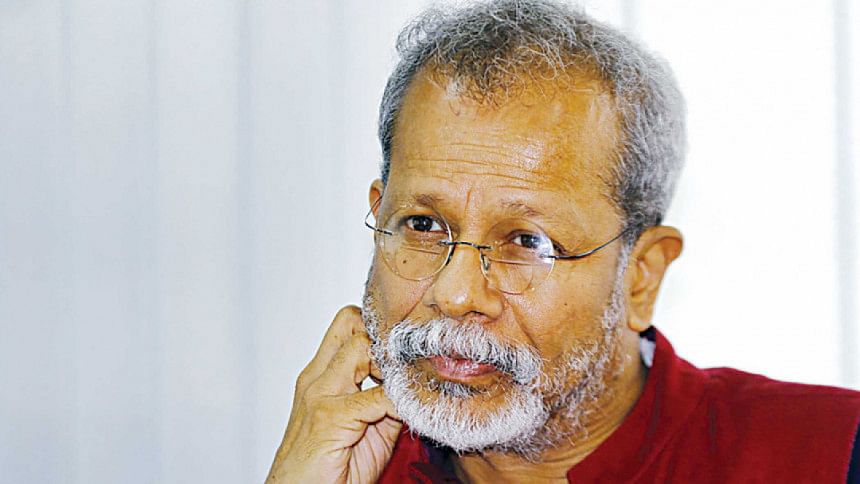“Myanmar army could be interested in Rohingya repatriation”

The Daily Star (TDS): Please provide a historical background of the Rohingya crisis.
Imtiaz Ahmed (IA): There is evidence that Rohingya people participated in elections in Myanmar and they had representatives in the cabinet. However, these people were denied their identity and became stateless.
More specifically, some regulations were formulated against them in the last two or three decades to make them stateless. They were forced to leave during the 70s and 90s but a huge number of displaced populations were able to return to the country both times, and this happened under military rule.

The 2017 influx was different from the past because during that time, Myanmar's government was partly quasi-democratic and partly military rule. There was also substantial evidence of conducting genocide intended to destroy the Rohingya population.
On the other hand, the International Court of Justice (ICJ) is also working on this genocide issue. One of the most crucial developments has been ICJ's two judgments, where the Rohingya identity has been recognised. This has been a real difference from the past since an international legal body for the first time recognised the Rohingya identity.
America has also announced that a genocide has been perpetrated by Myanmar'sarmy against the Rohingya population. Although it took three years for their research but no doubt it has been a significant development.
TDS: Myanmar has entered a more uncertain political phase after the ousting of Aung San Suu Kyi. In Rakhine State, the Arakan Army is fighting against the Myanmar army. What could be a way out?
IA: Earlier, it was a strategic weakness on Bangladesh's part that it only negotiated with Suu Kyi's party, which was one part of the government, but not with the army of Myanmar.
A civil conflict scaled up in Myanmar between Suu Kyi's party and army after the removal of Aung San Suu Kyi from power on February 1, 2021. Suu Kyi's party-supported government in exile is said to have recognised the Rohingyas as citizens of Myanmar. The Myanmar army is domestically weak due to internal conflicts. So, many insurgent groups are stepping up against the army, including the Arakan Army.
Now it is an opportunity for Bangladesh to talk directly with the Myanmar army about the repatriation. Because no matter which party remains in power, the army will always be part of the government as a state institution and political body. Myanmar'sarmy could also be interested in repatriation of Rohingyas since it is facing a lack of international credibility due to the civil war. The Chinese ambassador in Bangladesh is also hopeful about the repatriation.
We must ensure that the repatriation should not be tokenism. Friendly states should be included in this repatriation process.
TDS: It seems that due to the Russia-Ukraine war, global attention has shifted away from the Rohingya crisis. What can Bangladesh do to keep the issue alive internationally?
IA: The war unveiled the Western world's duplicity. For the Rohingya crisis, they would always say sanctions aren't effective to change anything but now they are giving many sanctions against Russia. It seems the international community hasn't given up their economic interest in Myanmar.
The interview was taken by Priyam Paul

 For all latest news, follow The Daily Star's Google News channel.
For all latest news, follow The Daily Star's Google News channel. 



Comments